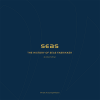Democracy, Education, and Equality
Many believe that equality of opportunity will be achieved when the prospects of children no longer depend upon the wealth and education of their parents. The institution through which the link between child and parental prospects may be weakened is public education. Many also believe that democracy is the political institution that will bring about justice. This study asks whether democracy, modeled as competition between political parties that represent different interests in the polity, will result in educational funding policies that will, at least eventually, produce citizens who have equal capacities (human capital), thus breaking the link between family background and child prospects. In other words, will democracy engender, through the educational finance policies it produces, a state of equal opportunity in the long run?
• Modeling how much positive educational change affects equality is a hot topic in economics, political science, sociology, and political philosophy • Roemer is one of the world’s leading students in this area of investigation • Offers clear, rigorous models demonstrating author’s point of view and others
Contents1. A brief overview; 2. Models of democratic party competition; 3. Democratic competition over educational investment; 4. The dynamics of human capital with endogenous growth; 5. Estimation of technological parameters; 6. Conclusion.
- Forlag: Cambridge University Press
- Utgivelsesår: 2006
- Kategori: Samfunn/politikk
- Lagerstatus: Ikke på lagerVarsle meg når denne kommer på lager
- Antall sider: 188
- ISBN: 9780521609135
- Innbinding: Heftet













